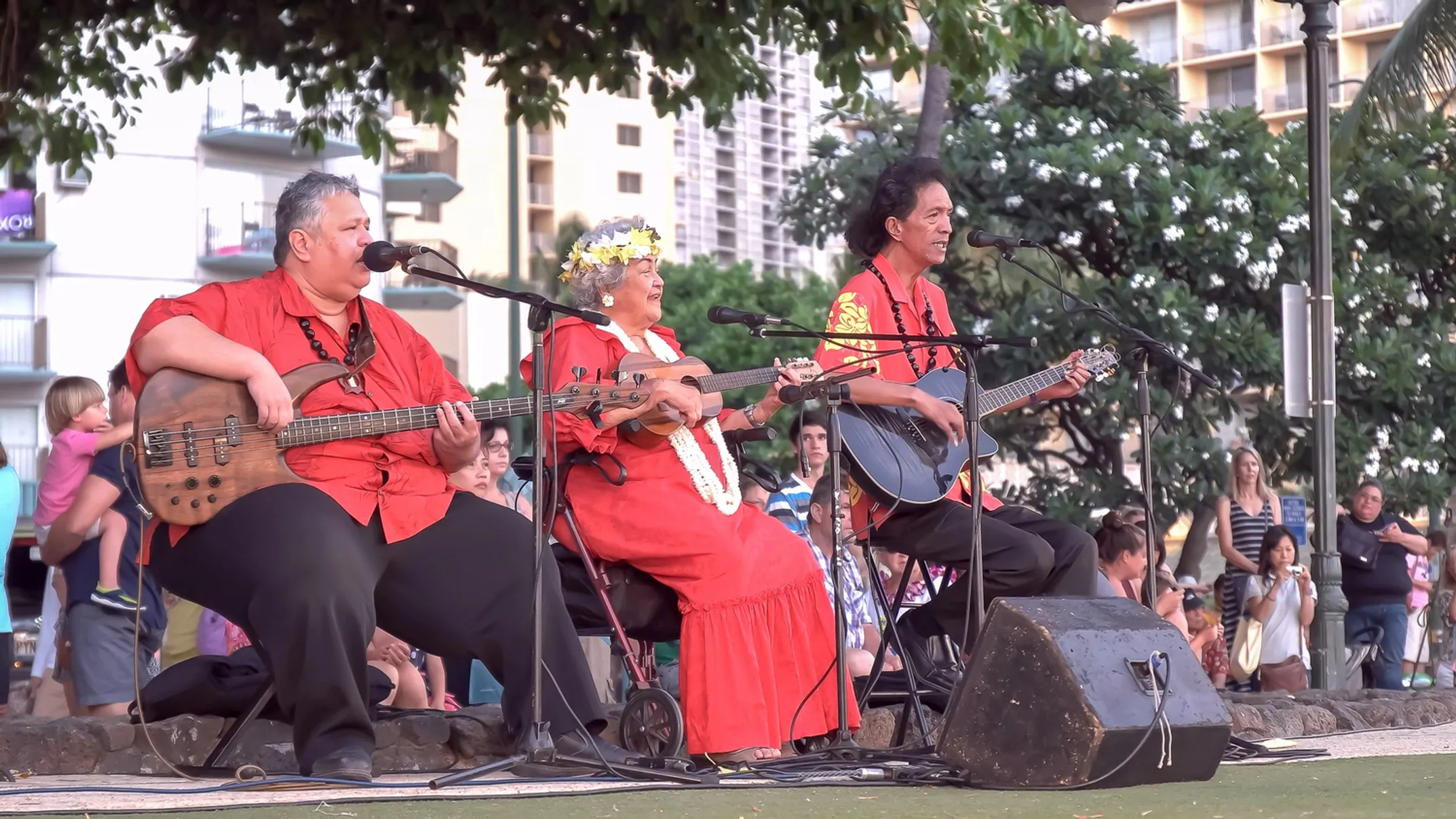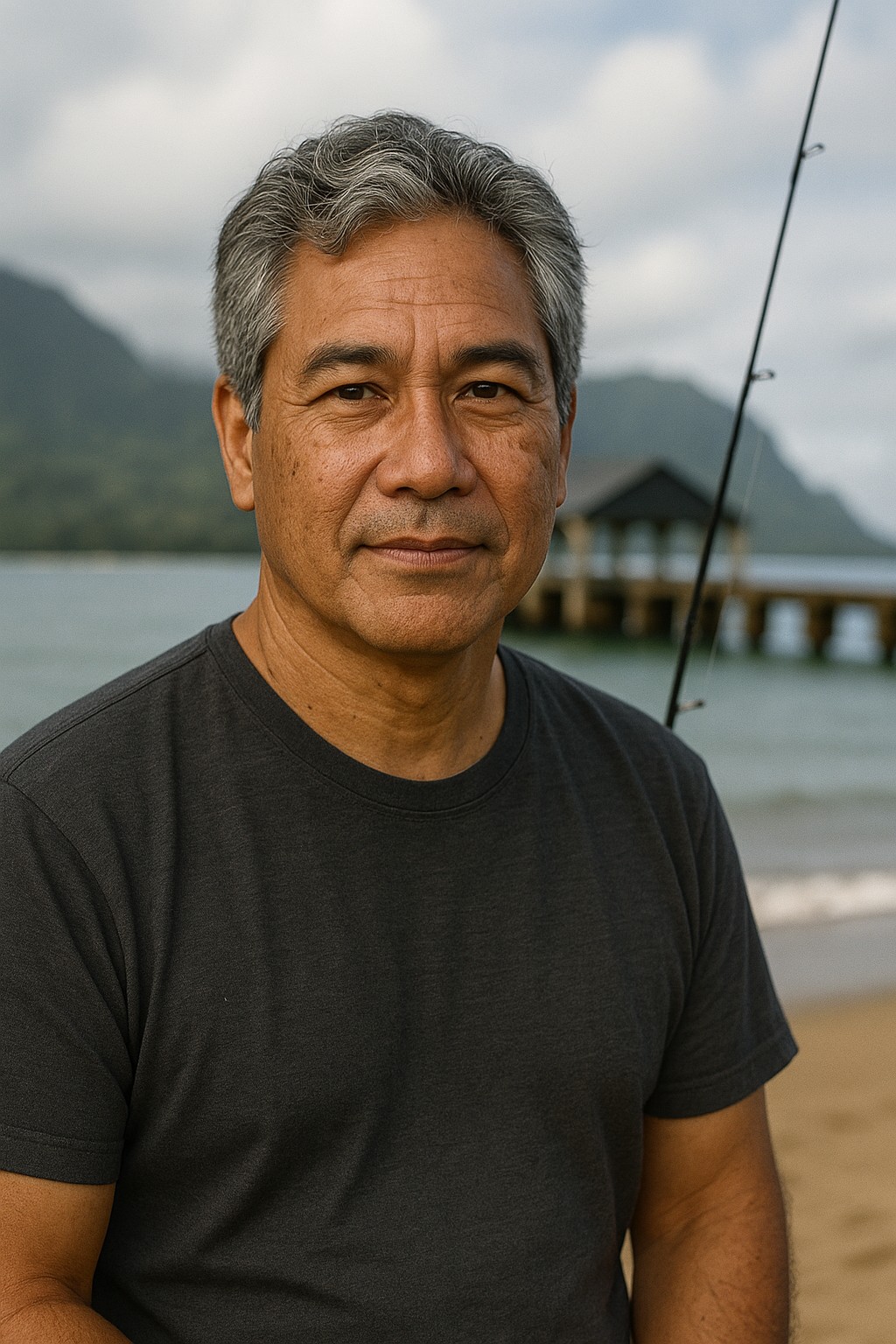

Resources Guide
Pathways to Authentic Learning and Practice

Written by a Cultural Practitioner
Kalani MillerPart V: Resources for the Respectful Traveler and Aspiring Learner
E Hoʻi i ka Piko (Returning to the Center)
Learning oli has been journey of hoʻi i ka piko—returning to center. Piko means navel, the point from which life radiates. Mauna Kea is piko of Hawaiʻi island, sacred center from which all energy flows. My journey into chant was journey back to this center: center of my culture, source of my ancestors' strength, and core of my own healed and empowered self.
The voice I thought I'd lost was never gone. It was waiting, patient as the mountain itself, for me to remember how to breathe, how to listen, how to trust in power that flows through proper words spoken with proper intent.
Every time I chant now, I'm not just preserving tradition. I'm participating in ongoing creation of my people, adding my voice to unbroken line that stretches back to first Polynesian voyagers who found these islands and forward to keiki not yet born who will carry these chants into future we can't yet imagine.
This is what oli offers anyone willing to approach it with respect: not just knowledge of Hawaiian culture, but understanding of your own voice as sacred instrument, your own breath as prayer, your own presence as gift to world around you.
A Guide for the Witness: 3 Protocols for Experiencing Oli Respectfully
For visitors and non-practitioners who have privilege of witnessing authentic oli performance, these essential protocols show respect:
🤫 The Protocol of Silence (Hāmau)
Silence is not absence of sound. It's act of active, focused, and respectful listening. It honors sacred space being created by chanter and allows vibrational mana of oli to be fully experienced without disruption. Avoid talking, whispering, or making unnecessary noise.
📵 The Protocol of Observation (No Recording)
An oli is living, ephemeral spiritual event, not product to be captured, owned, or consumed. Taking photographs or recording video or audio is highly intrusive and disrespectful to sacred practice, chanter, and deities or ancestors being addressed. Focus should be on being fully present in moment, not on documenting it.
🎁 The Protocol of Offering (Hoʻokupu)
The greatest offering witness can give is full, humble, and respectful attention. Physical offerings like flowers or gifts are not required and can be inappropriate if not part of pre-arranged, formal ceremony. In most contexts, true gift is reciprocal exchange of aloha through focused, heartfelt presence.
A Directory for the Learner: Pathways to Understanding Oli
For readers inspired to learn more, this directory provides starting point for authentic study.
Kumu and Workshops
Still & Moving Center
Located on Oʻahu, offers variety of in-person and online classes in Hawaiian culture, including Hula Kahiko & Oli Basics with Kumu Mālia Helelā. These classes provide foundation in ancient hula, movement, and vocal techniques.
In-person and online classes available
Hālau Pō Me Nani School
Online school offering "Oli & Hula Jam" introductory workshops and structured, multi-level curriculum for those seeking to deepen practice with Kumu Nālani. Focus is on understanding oli as part of daily life, healing, and protocol.
Hawaiian Spiritual Studies online program
Hawaiian Healing Arts
Offers online training programs with Patti Miller, such as "Hawaiian Shamanistic Healing" series, which incorporates Hawaiian chants and prayers into curriculum for personal growth and healing.
Online healing-focused programs
Community Institutions
Kamehameha Schools employs dedicated kumu oli like Aina Asing on its Kapālama campus. Hawaiʻi's public libraries frequently host free workshops and presentations on oli with local kumu, such as events at Kahuku Public Library with Kumu Kamaile Tai Hook.
Free community workshops and events
Online & Archival Resources
ʻŌiwi TV
Premier digital destination for authentic, contemporary Native Hawaiian content. Its programming includes documentaries, cultural events, and music series that provide rich context for living traditions of Hawaiʻi.
Native Hawaiian multimedia platform
ʻAha Pūnana Leo's Niuolahiki Program
Official online distance-learning program of ʻAha Pūnana Leo. For anyone serious about understanding oli, learning Hawaiian language is essential first step, and this is authoritative source.
Hawaiian language immersion program
Bernice Pauahi Bishop Museum Digital Archives
Critical resource for researchers and serious students. Museum's online collections provide access to portion of vast holdings, including historical photographs, newspaper archives, and information about world-class audio collection of chants.
Historical archives and recordings
Huapala Hawaiian Music and Hula Archives
Valuable online database providing lyrics and, in many cases, translations for hundreds of Hawaiian mele and chants. It's excellent quick reference, though depth of cultural context can vary by entry.
Online database of Hawaiian music
Adventure and History on Oʻahu
While soul of Hawaiʻi can be found in ancient chants, islands offer wide spectrum of experiences. For those seeking modern thrills and family fun, Coral Crater Adventure Park provides activities like ziplining and ATV tours. To connect with pivotal moment in 20th-century world history, visit to Pearl Harbor offers solemn and educational look at events that shaped the Pacific.
Mahalo for Your Respectful Journey
You have completed this guide to the sacred art of Hawaiian chant. May your understanding deepen with respect and aloha.
👁️ Witnessing Protocols
- Hāmau: Respectful silence
- No Recording: Present moment focus
- Hoʻokupu: Offering of attention
📚 Learning Types
Direct kumu instruction
Distance learning options
Free workshops & libraries
Historical recordings
✅ Essential Prerequisites
- Respect: Approach with humility
- Language: Learn ʻŌlelo Hawaiʻi
- Kumu: Find authentic teacher
- Patience: Long-term commitment
📞 Key Organizations
Language immersion schools
Cultural archives
Educational programs
Digital media platform
📖 Guide Navigation

About the Author
Kalani Miller
Kalani Miller is a Native Hawaiian writer, cultural practitioner, and father of four living on Kauaʻi. He has studied oli under traditional kumu for over a decade and is committed to sharing authentic Hawaiian knowledge with respect and accuracy.

